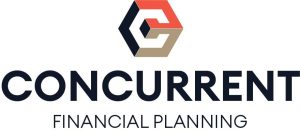As income rises, so does financial complexity. Yet many high-income earners lack the time, tools, or tailored education to fully understand their wealth. From equity compensation and estate strategies to multi-layered tax scenarios, affluent professionals often find themselves with more questions than answers. That’s why financial education has become one of the most sought-after deliverables in comprehensive wealth planning.
Contrary to the assumption that high-income individuals already understand the financial system, recent data shows that affluent clients are craving strategic insight, not just advice. For financial advisors and planners, this shift presents an opportunity to create value beyond portfolio management.
High Income Doesn’t Mean High Understanding
Income growth does not necessarily translate to financial fluency. In fact, studies reveal that complexity often outpaces comprehension. A recent TIAA Institute survey found that only 36% of high-income earners could answer more than 80% of advanced financial literacy questions related to tax, investing, and estate strategies¹. This gap poses risks—not just to financial outcomes but to decision-making confidence.
Additionally, a study by Cerulli Associates found that 67% of affluent investors want their advisor to “explain complex topics in simple, plain language”². When advice is paired with education, clients not only understand their options—they’re more likely to act on them.
The Hidden Costs of Misunderstood Strategies
High-income professionals face distinct challenges, particularly when it comes to equity compensation, retirement tax planning, and estate transfer. Take, for example, restricted stock units (RSUs). Without proper RSU tax planning, clients may be unaware that their vested shares are taxed as ordinary income, potentially triggering higher Medicare surtaxes or AMT exposure.
Consider this scenario: a $450,000/year executive who failed to file an 83(b) election on early-stage stock options. As the company grew, their shares appreciated from $0.10 to $10 per share. When the shares vested, they were taxed on $1 million of phantom income—resulting in a preventable six-figure tax bill.
This underscores the critical role of education in proactive tax strategies, especially in high-income households where multiple factors interact: income timing, capital gains treatment, contribution limits, and estate planning triggers.
What Affluent Clients Really Want from Their Advisor
Modern wealth clients don’t just want returns—they want reasons. They want to understand the “why” behind every strategy and feel empowered by the process. Research from Vanguard confirms that financially educated clients are nearly three times more likely to follow through with their financial plan³. This isn’t about hand-holding—it’s about partnership.
Moreover, high-income Gen Xers—many of whom straddle college funding, aging parents, and retirement readiness—are especially eager for education that includes the full picture of their wealth. They value clarity on how executive compensation integrates with retirement accounts, how backdoor Roth IRAs can bypass income limits, and how charitable strategies like donor-advised funds can offset tax burdens while aligning with personal values.
How Concurrent Wealth Management Embeds Education into Advice
At Concurrent Wealth, education isn’t an add-on—it’s a core part of the client experience. Every new client relationship begins with a Clarity Session, where financial strategies are explained visually, contextually, and in alignment with life priorities.
We simplify complex topics like tax-loss harvesting, deferred compensation, and private equity opportunities through:
- Custom one-pager visuals
- Interactive whiteboard explanations
- Spouse and family briefings
- Executive summaries tailored to each planning area
This clarity-first approach aligns with our Life Money Balance® philosophy—helping clients make empowered, purpose-driven decisions that support both their wealth and their well-being. When clients understand their financial strategies, they not only experience greater peace of mind—they make smarter, more consistent financial choices.
Strategic Financial Education Increases Family Alignment
One often overlooked benefit of financial education is its impact on families. According to Spectrem Group, 54% of ultra-high-net-worth individuals ($5M+ net worth) want “learning experiences” that include heirs and spouses⁴. When family members are educated on the financial framework, it promotes trust, reduces conflict, and sets the stage for smoother wealth transitions.
At Concurrent, we create space for these multigenerational learning moments through values-based planning and legacy conversations. It’s not just about transferring assets—it’s about transferring wisdom.
Three Key Takeaways
- High-income complexity demands more than advice—it requires education. Income growth increases exposure to nuanced tax, compensation, and estate decisions that can cost clients without clarity.
- Educated clients are more confident and engaged. Data shows that clients who understand their plan are significantly more likely to implement it, trust their advisor, and stay invested long-term.
- Education strengthens family wealth. When spouses and heirs are part of the conversation, wealth plans gain durability and alignment across generations.
Let’s Talk Strategy—Not Just Numbers
If you’re a high-income professional or Gen Xer navigating advanced planning questions, we invite you to explore a more empowering experience.
At Concurrent Wealth Management, we don’t just manage your money—we help you understand how to make it work for your life.
Schedule a complimentary, good-fit meeting here to see how our clarity-first approach can support your financial journey.
References
- TIAA Institute. (2023). Financial Literacy Among High-Income Earners. Retrieved from https://www.tiaainstitute.org/
- Cerulli Associates. (2023). U.S. Retail Investor Advice Relationships. Retrieved from https://www.cerulli.com/
- Vanguard. (2022). Putting a Value on Your Value: Quantifying Vanguard Advisor’s Alpha. Retrieved from https://advisors.vanguard.com/
- Spectrem Group. (2023). High Net Worth Investor Research. Retrieved from https://spectrem.com/





